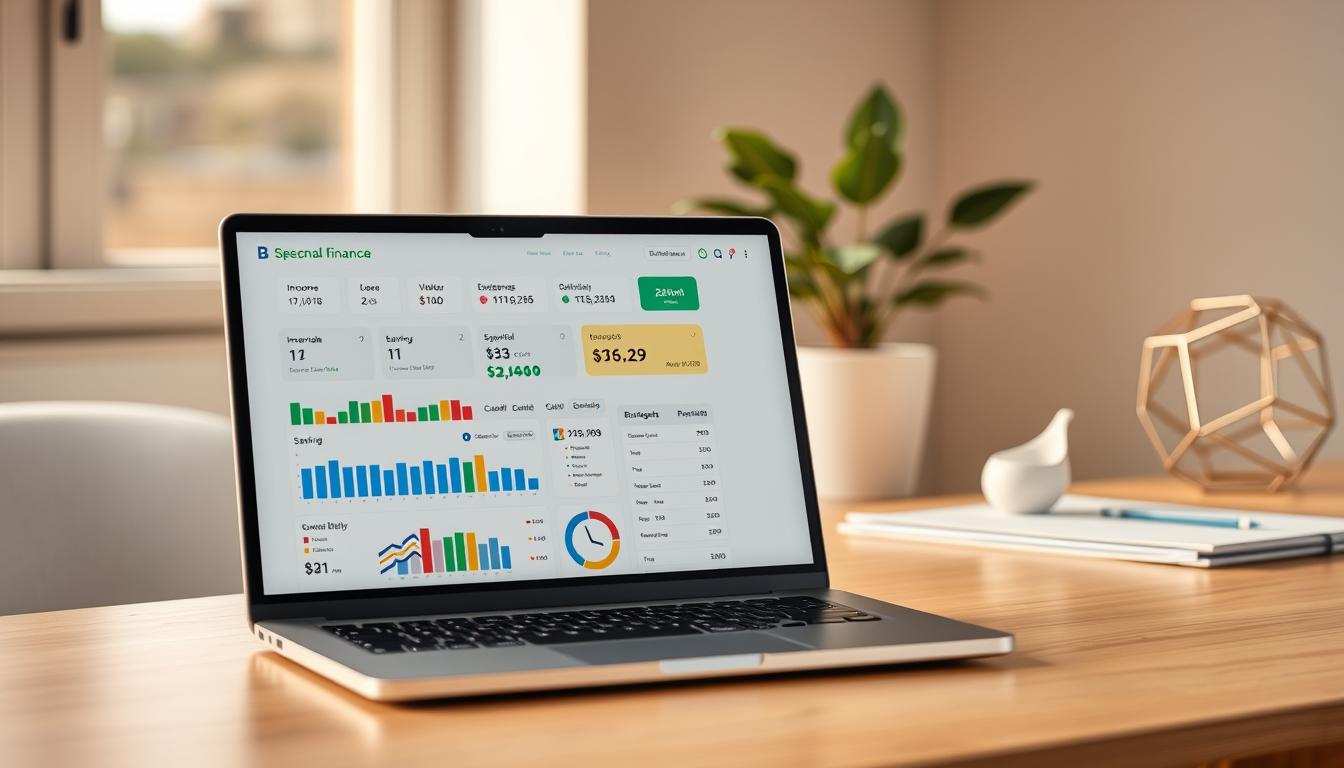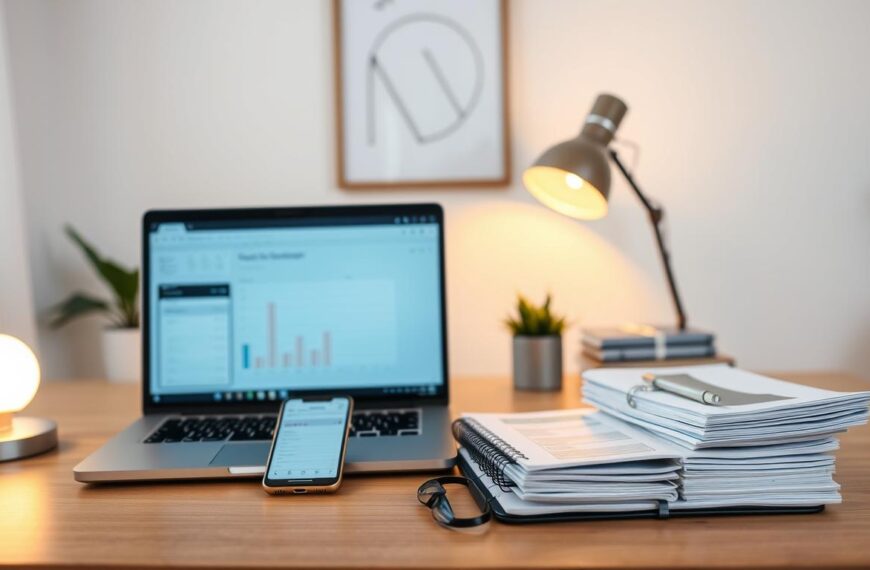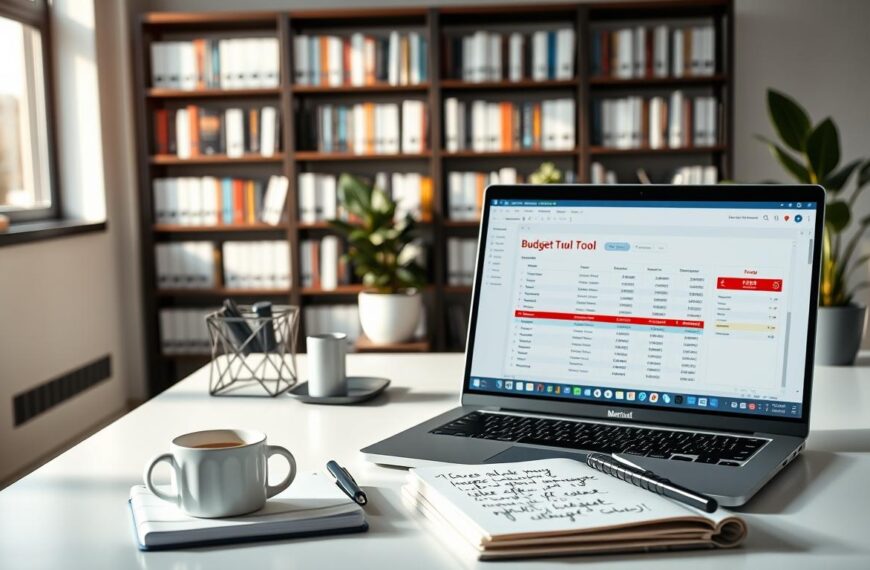Effective financial management is crucial for both personal and business success. A well-structured budget planner can help individuals and organisations track their money flow, ensuring they avoid debt and maintain financial stability. However, traditional budgeting methods often fall short by overlooking one-off expenses such as birthdays or unexpected dental treatments, as highlighted by MoneySavingExpert1.
Using a free budget planner can provide deeper insights into cash flow and spending habits, helping users understand if they are spending more than they earn1. This is particularly important in today’s economy, where managing finances effectively is not just about saving but also about making smart financial decisions.
Modern budgeting systems offer innovative solutions to these challenges. For instance, cloud-based budgeting software is not only cost-effective but also scalable, making it an ideal choice for small businesses2. Additionally, apps like YNAB and Quicken provide features that help users manage their finances more efficiently, such as tracking investments and curbing overspending3.
For those looking to improve their financial management, exploring these tools can be a game-changer. Whether you’re managing personal finances or overseeing business expenditures, the right budget planner can make all the difference. To learn more about the best personal finance services, visit PCMag’s picks for top-rated solutions.
Understanding the Significance of Budgeting
Effective money management is essential for maintaining financial stability, whether for personal or business needs. A well-structured approach helps track income and expenses, ensuring debts are managed and savings grow. However, traditional methods often overlook irregular expenses like holidays or unexpected bills, which can disrupt financial plans4.
Challenges with Traditional Budget Approaches
Conventional budgeting typically focuses on monthly expenses, missing irregular costs such as high holiday bills or unexpected dental fees. This oversight can lead to inaccurate financial plans and potential debt4. For instance, a typical UK family spends around £800 on Christmas, which averages £67 monthly4. Such expenses, if unaccounted for, can strain budgets and reduce savings.
Benefits of an Accurate and Realistic Budget
Modern apps and tools offer innovative solutions by linking directly to bank accounts and tracking every bill. These tools provide a clear picture of spending habits, helping users avoid overspending and build consistent savings. For example, cutting out a £2.50 daily coffee can save over £600 annually4.
Credit management is crucial, and advanced tools provide real-time data to help users make informed decisions. By accurately tracking expenses, individuals can achieve financial resilience and reduce the risk of debt. To explore more about budgeting tools, visit this resource for detailed insights.
Building Your Personal and Business Budget Strategy
Creating a robust financial plan requires a structured approach that combines accurate data collection, expense identification, and smart allocation of resources. Whether for personal or business needs, a well-crafted strategy ensures financial stability and growth.
Gathering Accurate Financial Data
To build a reliable budget, start by collecting detailed financial records. This includes bank statements, bills, and receipts, which provide insights into spending habits5. Essential expenses like mortgage, rent, and utilities should be prioritised, while also accounting for discretionary spending such as dining out and entertainment5.

Regularly reviewing these documents helps identify trends and areas for adjustment, ensuring your financial plan is realistic and effective.
Identifying One-Off and Irregular Expenses
One-off expenses, such as birthdays or unexpected dental treatments, can disrupt even the best-laid plans6. By logging these irregular costs, you can allocate funds specifically for them, preventing financial strain.
For instance, setting aside a portion of your income each month for unexpected expenses ensures you’re prepared for any eventuality.
Balancing Income and Expenditure Effectively
A balanced budget juxtaposes regular spending with occasional outlays. Allocating 50% of income to essentials, 30% to discretionary spending, and 20% to savings, as per the 50/30/20 rule, is a proven method5.
Pension contributions and long-term investments should also be integral parts of your financial plan, ensuring future security alongside present stability.
“A well-organised financial system not only enhances efficiency but also promotes transparency in managing money.”
By adopting a systematic approach, you create a reliable budget that offers quality financial service, supporting both personal and business needs effectively.
Optimising Your Spending with budget tools
Managing finances effectively requires more than just tracking income and expenses. It involves using the right resources to optimise spending and maintain financial health. Modern mobile and desktop applications have revolutionised how individuals and businesses handle their finances, offering features that automate budget reviews and provide real-time insights.
Exploring Mobile and Desktop Applications
Applications like Monzo, Chase, and Starling offer comprehensive financial management solutions. These apps link directly to bank accounts and credit cards, automatically tracking every transaction and providing a clear overview of spending habits7. They also categorise expenses, helping users identify areas where they can cut back and save more.
Automating Regular Budget Reviews
One of the standout features of these applications is their ability to automate budget reviews. By setting up alerts and notifications, users can stay informed about their financial status without manual intervention. For instance, apps can notify when a regular bill is due or when spending exceeds a set limit, ensuring better control over finances.
These tools also facilitate regular financial reviews, enabling users to adjust their budgets as needed. By automating these processes, individuals can save time and ensure their financial plans remain accurate and effective.
- Applications provide real-time data and alerts to help users stay within budget limits.
- Automated systems facilitate regular financial reviews and adjustments.
- Integration with bank accounts and credit cards enables seamless data tracking.
- Features like tax calculations and expense categorisation offer a comprehensive financial overview.
By leveraging these modern tools, users can achieve a better balance between income and expenditure, ensuring long-term financial stability and security.
Implementing a Customised Budget Planner
Setting up a tailored budget planner is essential for effective financial management. Whether for home or personal use, a well-structured plan helps track income and expenses, ensuring financial stability. Using a spreadsheet can simplify this process, allowing for clear categorisation of spending.
Setting Up Your Planner and Expense Categories
Begin by creating a spreadsheet with categories for income, fixed expenses, and discretionary spending. Allocate 50% of your income to essentials like housing and utilities, 30% to non-essentials, and 20% to savings8. This 50/30/20 rule helps maintain a balanced approach to money management.
Organise expense categories logically, considering both recurring and one-off costs. For example, include sections for regular bills, entertainment, and unexpected expenses like car repairs. This structured approach ensures no expenditure is overlooked.
Scheduling Automatic Transfers and Standing Orders
Automate savings and bill payments to streamline your financial routine. Set up standing orders for rent, utilities, and savings to ensure timely payments. Use features in apps like Monzo or Starling to automate budget reviews and receive spending alerts4.
Monitoring Progress and Making Adjustments
Regularly review your budget to track spending and identify areas for adjustment. Use a spreadsheet to monitor progress and make necessary changes. For instance, if you spend more on dining out, allocate less to that category next month.
- Automate transfers to simplify savings and bill payments.
- Review and adjust your budget regularly to stay on track.
- Use a spreadsheet for clear tracking of income and expenses.
By implementing these steps, you can manage your money more effectively, supporting better financial decisions and a sustainable home financial system. Ask yourself: Are you saving enough? Are there areas where you can cut back? Regular checks ensure your financial plan remains realistic and effective.
Conclusion
Creating a well-structured financial plan is key to achieving stability and enhancing your living standards. By utilising modern budget tools, individuals and businesses can track expenses, avoid overspending, and maintain a balanced lifestyle. These tools offer detailed insights, helping you make informed decisions and stay on top of your finances9.
Regularly reviewing your budget and automating financial processes can lead to long-term benefits. A disciplined approach ensures that you allocate resources effectively, whether it’s for personal or business needs. For instance, setting aside a portion of your income each month for unexpected expenses can prevent financial strain10.
Adopting a proactive budgeting strategy allows you to manage day-to-day finances securely. To explore the best tools available, visit NerdWallet’s guide for top-rated budgeting apps. By implementing these strategies, you can ensure a stable and prosperous financial future.
FAQ
How can I effectively manage my debt while creating a budget?
Start by listing all your debts, including the balance and interest rates. Prioritise paying off high-interest debts first, while making minimum payments on others. Use a budget planner or app to track your progress and allocate a specific portion of your income towards debt repayment each month.
What is the best way to track my daily spending?
Use a budgeting app or a spreadsheet to log every purchase. Categorise your spending to identify areas where you can cut back. Regular reviews will help you stay on track and make necessary adjustments to your financial plan.
How does a credit score impact my financial planning?
Your credit score affects loan rates, mortgage approvals, and even some service agreements. Maintaining a good score requires consistent debt repayment, low credit utilisation, and avoiding negative marks on your report. Monitor it regularly to ensure your financial health.
Can I use a budget planner for both personal and business finances?
Yes, many budget planners are designed to handle both personal and business needs. Separate your income and expenses into distinct categories to avoid mixing funds. This helps in maintaining clarity and ensuring accurate financial reporting for both areas.
What are the key categories I should include in my budget?
Essential categories include housing, utilities, groceries, transportation, insurance, and entertainment. Don’t forget to allocate a portion for savings and debt repayment. Tailor your categories based on your lifestyle and financial goals.
How often should I review and update my budget?
Review your budget monthly to account for changes in income, expenses, or financial priorities. Annual check-ups are also crucial to align your plan with long-term goals, such as buying a home or planning for retirement.
What tools can help me automate my budgeting process?
Consider using bank apps, automated spreadsheets, or budgeting software. These tools can track your spending, send alerts, and even transfer funds to your savings or investment accounts automatically.
How can I avoid overspending during holidays or special occasions?
Set a specific budget for holidays and stick to it. Prioritise needs over wants and consider alternative ways to celebrate without overspending. Using cash instead of cards can also help you stay mindful of your expenditures.
What are the benefits of using a budgeting app?
Budgeting apps offer real-time tracking, automated categorisation, and alerts for overspending. They also provide insights into your spending habits, helping you make informed financial decisions and improve your money management skills.
How can I ensure my budget aligns with my long-term financial goals?
Start by defining your goals, such as buying a home, retirement, or paying off debt. Allocate a portion of your income specifically for these objectives. Regularly review and adjust your budget to ensure you’re on track to achieving them.
Source Links
- https://www.which.co.uk/money/money-saving-tips/budgeting/open-banking-budgeting-and-saving-apps-aLl3e0g9I7Ft
- https://www.scoro.com/blog/business-budgeting-software/
- https://www.techradar.com/best/best-personal-finance-software
- https://www.moneysavingexpert.com/banking/budget-planning/
- https://www.barclays.co.uk/money-management/budgeting/creating-a-budget-plan/
- https://www.sumup.com/en-gb/running-business/finance/small-business-budget/
- https://www.gov.uk/algorithmic-transparency-records/money-and-pensions-service-budget-planner
- https://www.experian.com/blogs/ask-experian/how-to-build-budget-spreadsheet/
- https://www.zoho.com/books/academy/financial-management/how-to-create-a-realistic-business-budget.html
- https://rcademy.com/how-to-make-a-budget-for-an-organization/

















